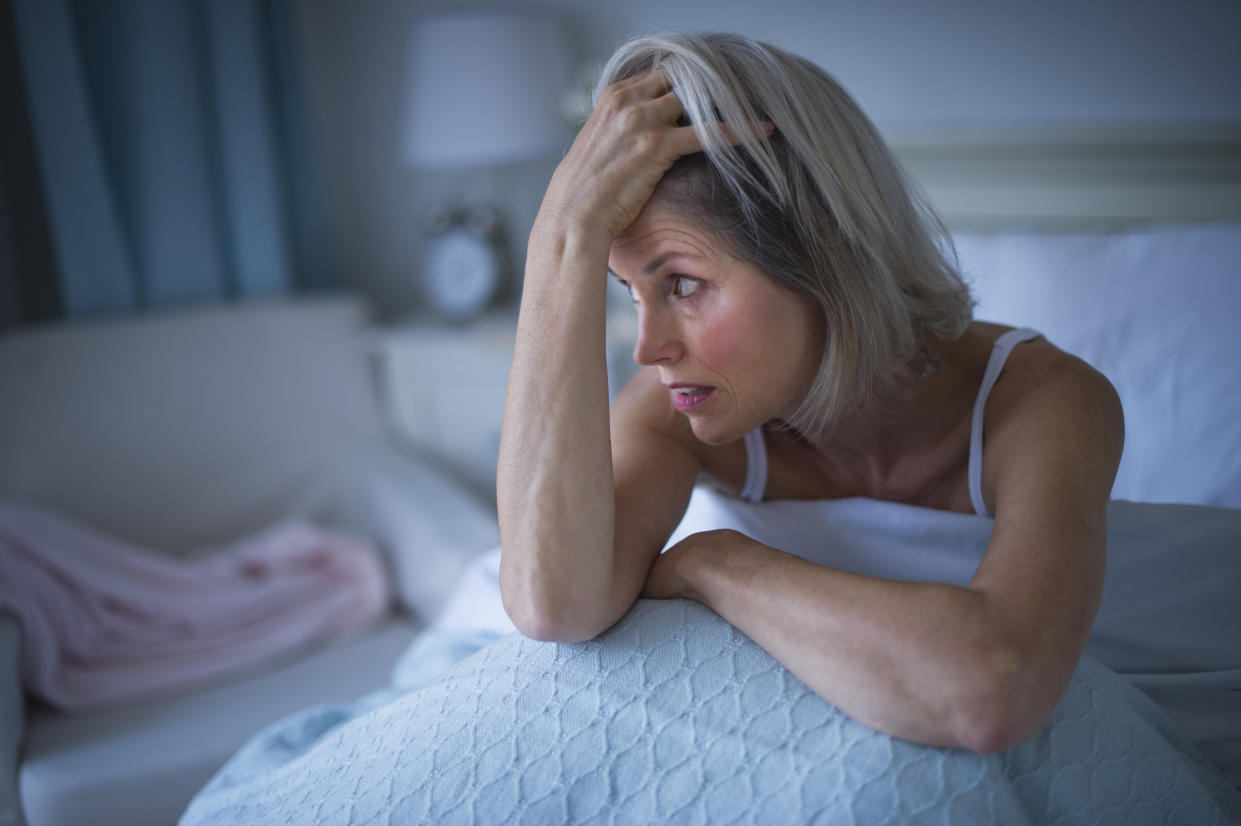Just one bad night’s sleep could trigger anxiety

Just one bad night’s sleep could be enough to trigger anxiety, research suggests.
Scientists from the University of California (UC), Berkeley, deprived 18 volunteers of a decent night’s kip.
The next day, half (50%) of the participants reported anxiety levels equal to patients with a clinical disorder.
READ MORE: The best sleep aids to help you nod off
They then watched “emotionally-triggering” videos while having their brain waves measured.
The scientists found sleep deprivation lowers activity in the prefrontal cortex (PFC). This regulates emotions and could leave insomniacs feeling overly sensitive.
“We have identified a new function of deep sleep, one that decreases anxiety overnight by reorganising connections in the brain,” study author Professor Matthew Walker said.
“Deep sleep seems to be a natural anxiolytic [anxiety inhibitor], so long as we get it each and every night.”
Insomnia affects a third of people in the UK, Bupa statistics show.
And in the US, 30% of adults struggle to nod off, with 10% battling chronic insomnia, according to the American Sleep Association.
Anxiety is also common, with 8.2 million cases in the UK in 2013 alone, the British charity No Panic reports.
In the US, 40 million adults suffer every year, according to the Anxiety and Depression Association of America.
READ MORE: Could 'moon breathing' help you sleep?
Insomnia and anxiety have long been linked, however, it was unclear how quickly a lack of shut eye influences a person’s mood.
The part of the brain affected was also somewhat of a mystery.
To learn more, the scientists looked at the 18 volunteers after they were both well rested and sleep deprived.
Results, published in the journal Nature Human Behaviour, revealed just one night of insomnia lowered the participants’ PFC activity. And the lower this was, the worse their anxiety.
All this suggests when we are tired, we are less able to process our emotions.
“Without sleep, it is almost as if the brain is too heavy on the emotional accelerator pedal, without enough brake,” Professor Walker said.
When the participants’ got a good night’s rest, their anxiety levels declined. This was particularly true for those who got plenty of non-rapid eye movement sleep (NREM).
NREM is a dreamless state where the brain waves are relatively slow, the eyes “still”, and the heart and breathing rate calm.
READ MORE: Cuddling this 'sleep robot' could help you nod off
“Our study not only establishes a causal connection between sleep and anxiety, but it identifies the kind of deep NREM sleep we need to calm the overanxious brain,” lead author Dr Eti Ben Simon said.
NREM occurs when you first nod off. For the first five-to-10 minutes, it is easy to wake up.
You then enter stage two NREM, where your heart rate slows and temperature drops while the body prepares for deep sleep.
Stage three is when deep sleep starts. The sleeper is harder to wake and feels disorientated if roused.
NREM is followed by rapid eye movement (REM) sleep. This is when a sleeper starts dreaming due to their brain being more active.
While both NREM and REM are important, NREM has been linked to body repair.
Studies even suggest this is when the brain “clears away” harmful proteins linked to dementia.
The UC scientists believe the rise in anxiety disorders in the western world may be linked to our increasingly hectic lifestyles, which leave many unable to nod off.

